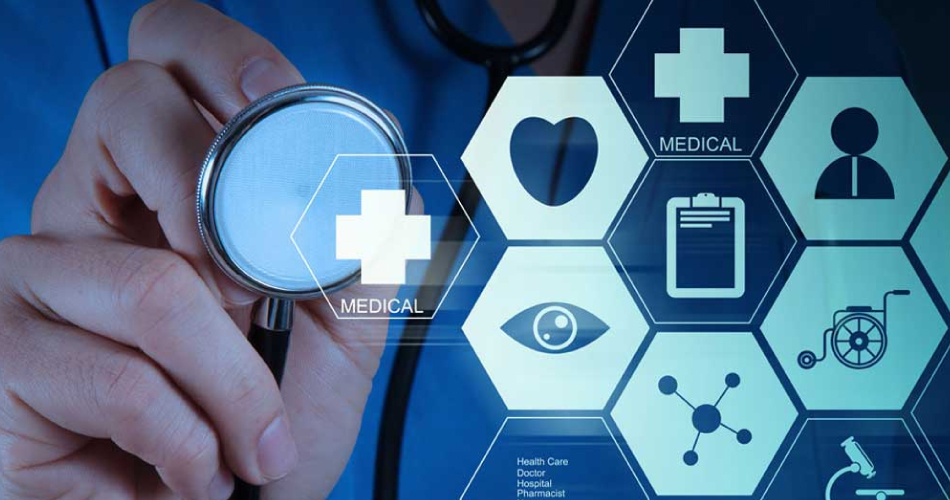A Solution to Healthcare Progress: Health Administration Applications
In today's rapidly evolving healthcare landscape, the adoption of tech advancements is vital for enhancing patient outcomes and enhancing operational efficiency. Among the multiple technological advancements, medical management software is exceptional as a significant tool that revolutionizes the way healthcare providers manage patient care and office operations. This cutting-edge software not only streamlines processes but also empowers healthcare professionals to focus more on what truly is important: providing excellent patient care.
As the demand for efficient healthcare solutions keeps to increase, medical management software offers a holistic approach to tackling the obstacles faced by healthcare providers. From arranging appointments and overseeing patient records to billing and compliance, this software is designed to ease complicated tasks, lessen errors, and ultimately enhance the overall healthcare experience. By harnessing the power of medical management software, healthcare organizations can more effectively respond to the constantly evolving demands of the industry while ensuring that patients get the best possible care.

Advantages of Clinical Management Software
Clinical management software enhances the efficiency of medical professionals by optimizing administrative tasks. By digitizing appointments, invoicing, and patient information handling, this software reduces the amount of time staff invest on traditional processes. This enhanced efficiency allows healthcare providers to dedicate their efforts more on client care rather than documentation, ultimately leading to superior patient outcomes.
Another important advantage is the better availability of patient information. Medical administration systems enables medical professionals to access thorough patient histories, laboratory results, and medication lists with just a couple of clicks. This instant availability fosters better decision-making and improves collaboration among medical groups, which is crucial for integrated client treatment. Additionally, it helps in rapidly detecting potential issues, ensuring swift interventions.
Furthermore, medical administration systems supports compliance with legal standards. By incorporating features that manage and handle compliance tasks, medical institutions can minimize the risk of significant fines and improve their overall operational transparency. This component of software not only safeguards the organization but also instills trust in clients regarding the reliability of their medical professionals.
Issues in Deployment
Integrating medical management software presents several challenges that healthcare organizations must navigate. One significant hurdle is the opposition to change among team members. Healthcare professionals are often familiar to established workflows and practices, and shifting to new software can be met with skepticism. Proper training and ongoing support are vital to overcoming this reluctance, as employees need to feel comfortable in using the new system to ensure a successful transition.
Another, key challenge is ensuring data interoperability. Many healthcare providers use different systems for various functions, and merging these separate systems can be difficult. Lack of smooth data sharing can hinder the effectiveness of medical management software, leading to inefficiencies and miscommunication. Organizations must diligently assess their existing infrastructure and invest in technologies that enable integration with the different software.
Ultimately, budget pressures can pose a major hindrance in the integration process. The costs associated with obtaining, integrating, and maintaining medical management software can be substantial. Healthcare organizations often function under strict financial conditions, making it essential to weigh the long-term benefits of the software against its upfront and recurring investment. Strategic planning and seeking possible funding sources can help alleviate some of the financial pressures during integration.
Future Developments in Medical Software
As medical services continues to progress, medical management software is projected to play a pivotal role in transforming the next era of patient care. One notable trend is the incorporation of artificial intelligence and machine learning into these systems. This technology will improve data analytics, allowing healthcare providers to make more educated decisions quickly. Forecasting tools within health management software can foresee patient needs, refine treatment plans, and improve overall operational efficiency.
Another major trend is the increasing emphasis on patient engagement and satisfaction. medicloudmed.ch is being revamped to be more accessible, allowing patients more access to their medical information. Features like telehealth, secure communication, and personalized health tracking tools will empower patients to take an proactive role in their healthcare process. This shift not only boosts patient satisfaction but also encourages better health outcomes through improved communication and cooperation.
Lastly, integration capabilities among various healthcare systems is becoming a necessary requirement. Future medical management software will focus on smooth integration with other medical software and information systems. This will ensure that medical records is readily accessible across different platforms and healthcare providers. Improved interoperability is expected to promote a more harmonized approach to patient care, ultimately leading to more efficient operations and better resource management in medical environments.